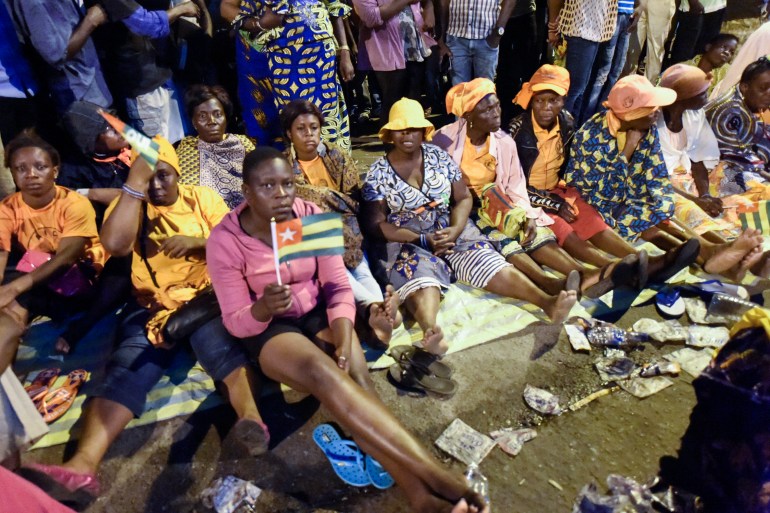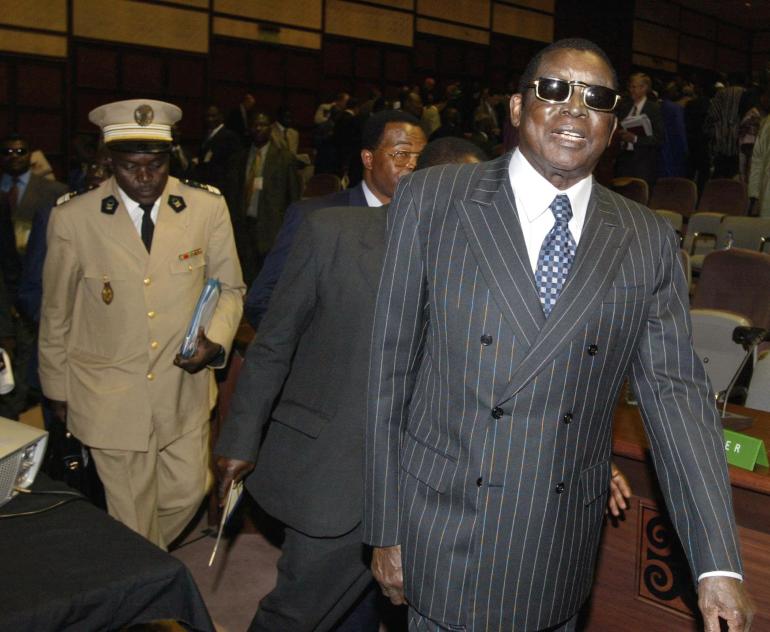Tensions are rising in Togo over major constitutional reforms ahead of delayed parliamentary elections.
The constitutional reboot was approved by lawmakers last month but resubmitted for “consultations” as public anger over its stealthy passage through parliament mounted with police breaking up an opposition news conference and cracking down on protests.
The reforms would see Togo move from a presidential to a parliamentary system, essentially ushering in the country’s fifth republic. But opposition activists believe it’s all a ruse designed to keep longstanding President Faure Gnassingbe in power – albeit, they say, with a new job title – preserving a dynastic system stretching back nearly six decades.
Amid the turmoil, Gnassingbe postponed parliamentary elections last week, a move that only served to stir up the unrest. Then, on Tuesday, the government announced that it would go ahead with the elections after all, rescheduling them for April 29, just over a week later than the original date.
At the same time, the government warned opposition groups to scrap plans for three days of protests this week, declaring the rallies illegal. But protest leaders in the small West African nation have vowed to take to the streets on April 12 and 13 anyway, despite the recent arrests of nine opposition figures.
“Don’t touch my constitution. It’s our only guarantee of stability,” Gerard Djossou, a member of the Dynamique pour La Majorite du Peuple (DMP) alliance of parties and civil society organisations, told Al Jazeera. Unlike in 1992, when Togo’s constitution was approved by an overwhelming majority of voters on a high turnout, the people been given no say this time round, he said.
As elections approach, here’s the state of play.
Who is Faure Gnassingbe?
Togo, a nation of around eight million people, has been ruled by the Gnassingbe family for nearly six decades.
The current president was just six months old when his father, General Gnassingbe Eyadema, seized power in 1967, a few years after participating in the country’s first postcolonial coup in 1963. His rule was characterised by brutality, his forces accused by Amnesty International of massacring hundreds after a fraudulent election in 1998 [PDF].
When Eyadema, “le patron” (the boss), died in 2005, the military moved swiftly to install his 38-year-old son, Faure Gnassingbe, in the presidential palace, provoking widespread fury. Standing with his Union for the Republic party (UNIR), he won elections shortly afterwards. However, the United Nations reported that security forces killed up to 500 people in the ensuring unrest.
In 2017 and 2018, there was further bouts of deadly unrest. Thousands of protesters gathered in the streets of Lome, the Togolese capital, to demand that Gnassingbe step down in accordance with the two-term limit set in the original 1992 constitution, a provision scrapped when parliament approved amendments removing presidential term limits in 2002.

As a sop to critics, the UNIR-heavy parliament passed amendments in 2019, allowing limits to be reimposed for presidential terms from that year onwards, thus paving the way for the president’s re-election in 2020 and 2025. Gnassingbe clinched a fourth term in the latest poll, with runner-up Agbeyome Kodjo, who once served as his father’s prime minister, crying foul. He and other opposition members accused the government of using fake polling stations and stuffing ballot boxes.
Kodjo, a leader of the Dynamique Monseigneur Kpodzro movement (DMK), went into hiding, dying in exile early this year. Gnassingbe’s opponents now fear the president’s latest amendments to the constitution are designed to keep him in charge even when the presidential term limits end.
As he reportedly once said: “My father told me to never leave power.”

What are the proposed constitutional changes?
At first glance, the constitutional reforms appear to give critics what they want, restricting the power of the president, who would be directly appointed by parliament for a single six-year term. Under the new system, executive power would instead lie with a “president of the council of ministers” – a prime minister – while Togo’s existing presidency will be reduced to a ceremonial role.
The holder of the new prime ministerial position, which would run for a six-year term, would be “the leader of the party or the leader of the majority coalition of parties following the legislative elections”.
Should the reforms pass, Gnassingbe’s opponents fear he could not only be reappointed president until 2031 but could also then step down from the job and switch to the new role of “president of the council of ministers” in what they say would be a constitutional coup.
Will the constitutional change go through?
Last month, the reforms sailed through parliament, approved by 89 lawmakers, with only one against and one abstention. Weak and historically divided, the main opposition parties had no say, having boycotted the last legislative elections in 2018, claiming “irregularities” in the electoral census.
Opposition groups, including Djossou’s DMP, the DMK and the Alliance Nationale pour le Changement (ANC), want Gnassingbe to ditch the reform. But, for now at least, they have little political leverage.
“It’s an organised scam … People have been swindled by those in power for years,” said Djossou, who is running as a DMP candidate in the parliamentary elections in the Golfe constituency in Lome. He believes Gnassingbe planned to rush through the reforms before the elections in order to sidestep the potential later risk of parliamentary opposition.
A group representing Togo’s Catholic bishops said lawmakers had no right to adopt a new constitution, with the parliament’s mandate having expired in December ahead of the elections. They urged Gnassingbe to hold off on signing the new constitution.
Announcing the postponement of elections last week after sending the reforms back to parliament for review, the presidency said in a statement that it “wished to have some days to engage in broad consultations with all stakeholders”.
Al Jazeera reached out to a government representative for comment, but received no immediate response.
What happens next?
As the parliamentary elections draw closer, emotions are running high.
About 100 academics, artists, politicians and activists last week signed an open letter, published online, calling on people to protest and reject what they called a “violation of the constitution”.
“They have gone too far,” said the letter. “How can we flout all the pillars of democracy, unashamedly touching the fundamental text of a country with no broad political and social consensus while calling ourselves democratic?”
On Tuesday, Hodabalo Awate, the minister of territorial administration, banned the planned opposition protests, stating that the organisers hadn’t submitted their application in time for a permit to be granted.
The opposition ANC and other groups said the protests would continue on April 12 and 13 anyway, undeterred by last week’s arrests of nine DMK members who were campaigning against the reforms in Lome.
A statement from the public prosecutor’s office said they had been arrested for disturbing public order. All nine were reportedly released on Tuesday evening.
Police have also broken up news conferences held by opposition parties and civil society groups, one of which was called “Don’t Touch My Constitution” – a phrase now adopted as a rallying cry by opponents of the reforms.
Aime Adi, who leads the Togo branch of Amnesty International, said the government’s responses to past protests had been “firm, forceful and heavy-handed”. Talking to The Associated Press news agency, he said that “given the bitter experiences of the past”, it was hard to predict whether people would heed calls to protest this time.

